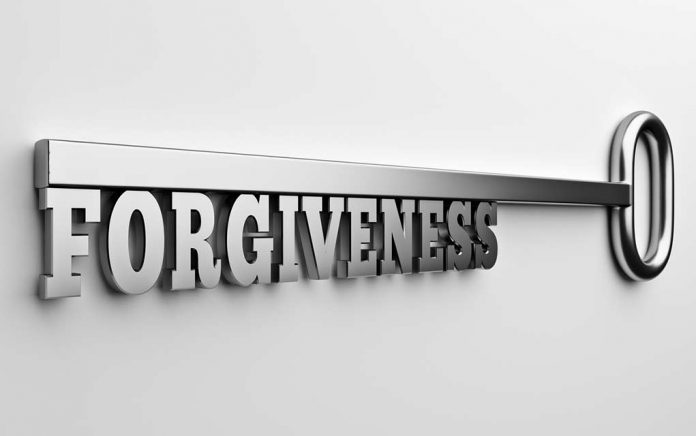
The concept of forgiveness is timeless and has been a factor in human relationships since before recorded history. The Bible, the Torah, and other long-followed spiritual books have a lot to say about forgiveness.
Romans 12:18-21:
If it is possible, as far as it depends on you, live at peace with everyone. Do not take revenge, my dear friends, but leave room for God’s wrath, for it is written: “It is mine to avenge; I will repay,” says the Lord. On the contrary: “If your enemy is hungry, feed him; if he is thirsty, give him something to drink. In doing this, you will heap burning coals on his head.” Do not be overcome by evil, but overcome evil with good.
Who is a God like You, who forgives iniquity and passes over the transgression of the remnant of His heritage? He does not maintain His anger forever, for He desires loving-kindness. — Micah 7:18
Those are just two of many, many examples… but why have we been taught that forgiveness is paramount since ancient times? And how can that still apply to us today in the modern world? What if you’re only casually spiritual and not religious — do these lessons still apply?
Forgiveness is a healthy habit that not only helps better us emotionally, but also physically. With practice and patience, you can learn to let go of grudges, because the only person those grudges truly hurt is you.
Forgiveness, Health and Other Benefits
Studies have shown time and again that forgiveness is linked to our health, and I don’t only mean our emotional well-being. Of course, when we stew in vengeful thoughts we bring negativity into our emotional state as we’re inundated with anger and sadness. In fact, by not letting go we expose ourselves to precursors for depression, anxiety, and stress. Forgiveness, on the other hand, can produce numerous mental health benefits, including reducing symptoms of depression and anxiety, as well as increasing self-confidence.
Studies have also looked into how people with a high tendency for holding grudges may be at increased risk for heart disease and high blood pressure. Meanwhile, forgiveness helps lower blood pressure and improves overall heart health. Moreover, letting go of grudges can help boost your immune health. Forgiveness is quite literally good for you.
Not to mention, being able to forgive has positive effects on your relationships, especially when you learn to let go of grievances with your loved ones. Of course, learning to be kind to and forgiving “enemies” is a harder task, but still one worth undertaking. By being kind and offering forgiveness, you can increase your own self-esteem and maybe even make a friend out of a perceived nemesis.
Steps on the Road to Forgiveness
Sometimes forgiveness is really hard. Some people forgive more easily than others. Some things are easier to forgive than others. However, everyone can learn to be more forgiving. You can train your mind to let go of resentment and vengeful thoughts, even if you’re one of those people who has a hard time letting go of grudges. Here are a few things you can do to exercise forgiveness.
Firstly, recognize the value in forgiveness. (Hopefully this article has helped!) Next, take the time to check in with yourself or even pray about the issue at hand. Acknowledge your emotions, any negativity and pain.
Next, give yourself permission to release that burden of negativity. Breathe it out. With a new frame of mind, you can now figure out what needs to be healed and who should be involved in the healing-forgiving process.
Lastly, and perhaps most importantly, let go and let live. Don’t revisit the issue or trudge up past grievances once you’ve decided to forgive them. This can be a tough step to follow through on, but it is vital.
If you have trouble forgiving or need extra help working through the negativity that a betrayal or hurt has caused you, reach out to someone. Talk to a pastor, or priest, Rabbi, counselor, or trusted friend for support and guidance. Acknowledging when you need social reinforcement is often an important step in forgiveness. It is not a sign of weakness, Friend. It’s a sign of strength and proof that you understand yourself and your needs. God has given us access to social supports for a reason. Reach out when you need it.
Ultimately, forgiveness isn’t necessarily for the people who hurt you. In all honesty, we can’t change someone else with forgiveness. Changing for the better is their job. We can, however, benefit our own souls. Forgiveness is a gift you give yourself, one that can bring you peace and help heal your mind, body and soul. God loves you and wants the best for you, which is why He asked Jesus to teach us about the importance of forgiveness.
Copyright 2021 Dailyrevival.com
















